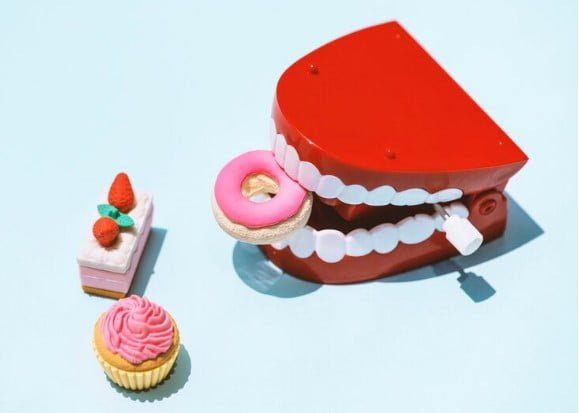
Implants have revolutionized oral treatment, offering the permanent replacement to missing teeth that appear and function just like natural teeth. However, the process of recovering in particular with regard to food, can be a huge problem for a lot of patients.
“How long after dental implants can I eat normally?” This is among the most frequently requested concerns of those who are considering or who have undergone the procedure. If you’re one of them, this manual will serve you with the details you require.
Understanding Dental Implants
Before we go through the timeline for recovery it’s important to understand the nature of dental implants and how they function. Implants are made of artificial roots, usually made of titanium. They are surgically inserted in the jawbone. As time passes the bone is fused with the implant via the process of osseointegration. This is providing a solid base for the crown or replacement tooth.
Benefits of Dental Implants:
Natural appearance and feel
The teeth resemble and function like natural teeth. The longevity of dental implants is dependent on the proper care dental implants could last for a life time.
Improved oral health
In contrast to implant bridges for dental, they do NOT need to reduce adjacent teeth.
Convenience
Reduces the discomfort of dentures that are removable.
The Recovery Timeline

Knowing the timeline for recovery is essential for changing your diet to ensure an easy healing process.
Immediate Post-Surgery (First 24-48 Hours)
The first 24 to 48 hours following surgery are crucial. In this time frame:
Diet:
Follow the liquid or soft-food diet. Smoothies, soups and smoothies offer many healthful options that could improve blood flow. Avoid drinking hot liquids or eating food that inhibits it by drinking plenty of fluids instead. Also be careful not to join straws together since their suction could result in blood clots forming.
Stay on track with your dentist’s instructions regarding dental care and use any medications to ease discomfort and protect against infections.
After Surgery:
For the first week post-surgery, your mouth is likely still healing from surgery and any associated procedures.
Diet:
Keep eating soft foods, but start eating some foods such as scrambled eggs, mashed potatoes.
Avoid eating hard food items, like spicy, crunchy or chewy foods which can cause irritation to the site of surgery or cause injury.
Oral Hygiene

Maintain excellent dental hygiene with gentle washing with saltwater and then gently brushing the area of surgery.
2-4 Weeks Post-Surgery
The process of osseointegration is in the process at this point however, your jawbone and gums are still healing
Diet:
Slowly introduce more foods that are solid including soft-cooked veggies pasta, pasta, and soft meats. Cut food into smaller pieces so that chewing is less of a problem.
Avoid:
Avoid food items that are extremely sticky or hard such as popcorn, nuts and chewy candy.
Check-ups regularly with your dentist are vital to keep track of your improvement.
1-3 Months Post-Surgery
Your implant is becoming more secure however, full osseointegration might require several months:
Diet:
You may return to a normal diet, but be careful. Avoid putting your finger directly at the implant if you can.
Care:
Make sure you’re keeping impeccable oral hygiene, and that you attend any follow-up appointments.
3-6 Months Post-Surgery
In the present, osseointegration has generally complete. Your dentist will apply the permanent crown
Diet:
You can consume virtually anything, however it’s perfect to stay away from sticky or hard foods to ensure the safety of your implant as well as your teeth naturally.
Care:
Make sure you continue to have regular dental appointments to warrant the continued well-being of your dental implant.
FAQs
1. Is It Necessary to Eat Right Away After Dental Implant Surgery?
No immediate food consumption should occur after dental implant surgery. In the start after anesthesia, only drink clear liquids and add soft foods.
2. What foods should I avoid during recovery?
To lessen the irritation of surgical sites and speed healing, avoid crunchy, hard chewy, spicy foods as these could disrupt healing or cause the implant to dislodge altogether.
Conclusion
If you have questions or require a specific advice Do not hesitate to make an appointment with your dental healthcare professional. They will be able to offer tailored advice to benefit you eat normally as quickly as you can.
Following the steps in this article and maintaining your implants will allow you to benefit from that new, beautiful smile for many years to follow. Enjoy your healing!